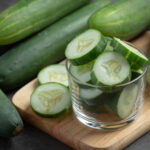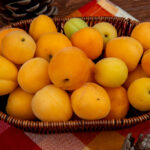
Seasonal allergies can be challenging to manage. While over-the-counter drugs are a common solution, natural antihistamines can also offer relief. Examples include butterbur, vitamin C, and quercetin. If you’re dealing with symptoms like sneezing, itchy eyes, nasal congestion, and sinus pressure, natural options may provide an effective alternative to traditional medications.
Understanding Allergies and Antihistamines
Allergies occur when the immune system reacts to harmless substances like pollen, animal dander, or dust. This reaction triggers the release of histamine, a chemical responsible for symptoms such as sneezing, itching, and cold-like discomfort. Antihistamines work by blocking histamine activity, thus alleviating the allergic response. Many over-the-counter allergy medications function as antihistamines, and certain natural foods and plant extracts can have similar effects.
Natural Antihistamines
Vitamin C
Vitamin C is a water-soluble vitamin found in citrus fruits, leafy greens, and berries. It is known for its role in healing wounds and managing infections. A 2023 review indicated that vitamin C can improve symptoms of allergic rhinitis, such as itching and sneezing. Vitamin C supplements can be helpful, especially if you have a deficiency and cannot get enough from your diet.
Probiotics
Probiotics are beneficial microorganisms that help maintain or improve gut bacteria levels. Found in foods like sauerkraut, yogurt, tempeh, sour cream, and kombucha, probiotics can reduce and prevent allergy symptoms, according to a 2021 review. They may also alleviate symptoms of asthma and atopic dermatitis. Including more probiotic-rich foods in your diet could be beneficial if you experience seasonal allergies.
Stinging Nettle
Stinging nettle is a flowering plant native to Asia and Western Northern Africa. Some studies suggest it may act as a natural antihistamine. A 2009 study found that stinging nettle could decrease allergy symptoms, although a 2017 study reported similar effects to a placebo. More research is needed, but stinging nettle supplements or teas are available at health food stores.
Quercetin
Quercetin is an antioxidant found in onions, apples, grapefruit, okra, and other produce. A 2022 study showed that quercetin might work as an antihistamine and reduce allergy symptoms effectively. You can take quercetin as a supplement or increase your intake of quercetin-rich foods.
Bromelain
Bromelain is a compound primarily found in pineapples. It is effective in treating respiratory distress and inflammation associated with allergies. A 2023 analysis suggested that bromelain could help with sinusitis, an inflammation of the nasal passages caused by allergies or colds. Experts recommend consuming pineapples to get bromelain naturally rather than relying on supplements.
Butterbur
Butterbur is a marsh plant in the daisy family, found throughout Europe, Asia, and North America. Research from 2012 suggested that butterbur could reduce the frequency and intensity of migraine attacks and treat nasal allergies. A 2023 study confirmed its safety and effectiveness as a natural treatment for seasonal allergic rhinitis. Butterbur is available as an oil extract or supplement.
Other Treatment Options

Several over-the-counter (OTC) and prescription medications are available to manage allergy symptoms. Common OTC options include Benadryl and Chlor-Trimeton. Prescription options include corticosteroids like prednisolone (Prelone), leukotriene receptor antagonists like montelukast (Singulair) and zafirlukast (Accolate), and decongestant nasal sprays like oxymetazoline hydrochloride (Dristan) and phenylephrine hydrochloride (Neo-Synephrine).
If allergy symptoms frequently affect your daily life, consider consulting a doctor to develop an effective treatment plan.
Takeaway
Allergy relief can be elusive, but combining natural remedies with proper self-care and allergen avoidance can help. While natural food sources of antihistamines are generally safe, supplements are not regulated in the United States. Ensure you obtain them from reputable sources and consult with a doctor before using any supplements.
By exploring natural antihistamines and integrating them with traditional treatments, you may find effective ways to manage your seasonal allergies











